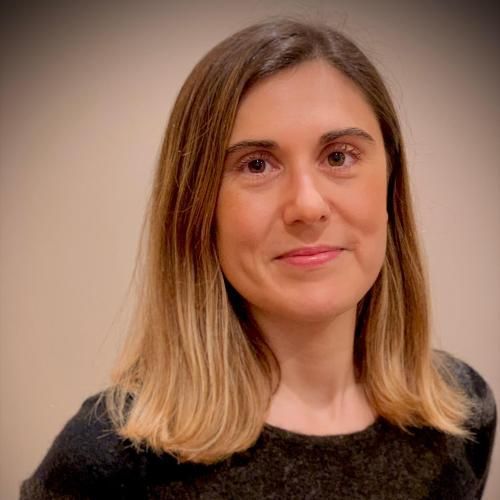
LAURA
AMADO RODRIGUEZ
Profesora Asociada en CC. Salud
Departamento: Medicina
Área: Medicina
Grupo de investigación: INVESTIGACIÓN TRASLACIONAL EN EL PACIENTE CRÍTICO
Email: amadolaura@uniovi.es
Doctora por la Universidad de Oviedo con la tesis Estrategia ventilatoria en el paciente hematológico crítico con fracaso respiratorio agudo 2016. Dirigida por Dr. Guillermo Muñiz Albaiceta.
Tras licenciarme en Medicina en el año 2008, mi actividad investigadora comienza en paralelo a mi formación como médico especialista en Medicina Intensiva (2009-2014), en el seno del Grupo de Investigación Traslacional en el Paciente Crítico de la Universidad de Oviedo, de reciente creación entonces y liderado por el que fue mi mentor, el Dr Guillermo Muñiz Albaiceta. De esta actividad, se desprenden publicaciones de alto impacto de manera constante desde el año 2011, fruto de la participación como miembro del equipo investigador en proyectos subvencionados por el Instituto de Salud Carlos III. Tras la obtención del Doctorado en el programa de doctorado de Biología Molecular y Celular de la Universidad de Oviedo (2016), esta actividad investigadora se apoya en la concesión de un contrato Río Hortega (ISCIII, AES2016) para adquirir y desarrollar habilidades como médica investigadora del Sistema Nacional de Salud. Este desarrollo se acompaña de una progresiva madurez e independencia científicas, apoyadas en proyectos financiados por parte de La Marató TV3 (2021), y del Instituto de Salud Carlos III (AES2021), ya como investigadora principal. Más recientemente (AES2022) logro optar a un contrato Juan Rodés, cofinanciado por la Unión Europea, con la finalidad de consolidar la figura del personal médico investigador, siendo esta mi posición actual desde marzo de 2023. Este contrato permite compaginar actividad asistencial e investigadora, facilitando el carácter traslacional y multidisciplinar de las líneas en las que se centra mi actividad investigadora actual. Una de las líneas en desarrollo parte del interés por ahondar en los mecanismos moleculares de la respuesta aguda a la patología crítica y se centran en su impacto sobre el desarrollo de secuelas a largo plazo en los supervivientes de las unidades de cuidados intensivos. Esta línea de trabajo se centra en dos dimensiones fundamentales del denominado síndrome postUCI, abarcando, por un lado, los mecanismos patogenéticos de debilidad muscular adquirida en UCI y, por otro, el desarrollo de alteraciones neurocognitivas. El modelo de trabajo aplicado en estas líneas compagina el uso de modelos preclínicos (células, modelos animales) con estudios clínicos y muestras biológicas de pacientes, con el objetivo de obtener resultados rápidamente trasladables desde el laboratorio al ámbito biosanitario que mejoren la práctica asistencial. Desde el año 2018, el grupo de investigación al que pertenezco se incorpora al CIBER de Enfermedades Respiratorias. En este consorcio dependiente del ISCIII, desarrollo no sólo mi actividad investigadora sino también tareas de gestión y formación como Coordinadora del Programa de Formación CIBERES y miembro del Comité de Dirección. Más recientemente (curso académico 2021-2022), ocupo una plaza de Profesora Asociada en Ciencias de la Salud en la Universidad de Oviedo, impartiendo docencia en el Grado en Medicina. Otras labores de docencia realizadas incluyen la participación en cursos y simposios internacionales, así como docencia en el Máster del Enfermo Crítico y Emergencias de la Universidad de Barcelona.







